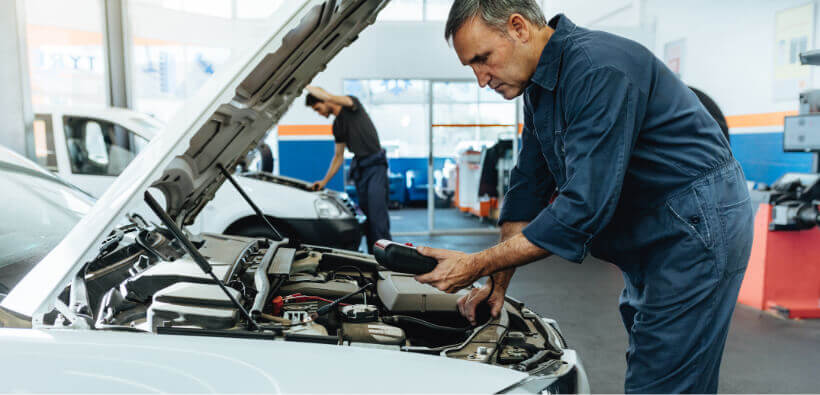Regular Maintenance For Your Car – It’s a Matter of Safety

Some of us pamper our cars as if they were part of the family. We keep it garaged, take it to the car wash every weekend whether it needs it or not, and make sure the shine is so bright it can be seen from the Space Station as it circles the earth. “Look, there’s Bob’s car. Man, is that thing shiny”.
Okay, so that’s an exaggeration. But, the truth is, you sometimes tend to take more care of the outside than you do the mechanical components. We’ve all been guilty of it at one time or another – though some of us make a habit of it. You get in, turn the key, and as long as it starts, you drive away and don’t give it another thought – much like checking to see if you’re getting a good rate on your car insurance.
With that in mind, did you know that having your car serviced regularly does more than just keep it running? It also keeps you safe. While newer cars require oil changes at substantially longer intervals than older cars, it pays to follow your manufacturer’s recommendation and have the oil changed within a few miles of the mileage window. If your commute or daily drive is a “grinder“, lots of miles and lots of sitting in traffic, it’s advisable to have the oil changed sooner than recommended. Once the oil breaks down, especially in excessively hot climates, you run the risk of having the oil level drop to a point that could cause damage to your engine.
These days, car dealerships offer reduced prices or discount coupons for oil changes to compete with all those lower-cost “super-fast” places. The fact is, those places aren’t necessarily cheaper. And, because many are independent franchises, having a mechanical issue related to a messed-up oil change could turn into a frustrating “hair-puller”. Been there. Not fun.
Having the work done at the dealership may be more time consuming, but in the long run may be worth it. Many dealerships throw in a tire rotation with the oil change. They inspect the fluids and various other components of your car. Most of those other guys say they do, but don’t always. If, by chance, they do and find something mechanically wrong…you’ll end up having to go to the dealership anyway.
Say the dealership mechanic notices one of your belts is frayed and suggests you replace it as soon as possible. You thank him, opt to throw the dice and go on your merry way. The majority of today’s cars have what is referred to as a “serpentine” belt. As opposed to older cars that had more than one belt, a serpentine is a single belt that wraps around various pulleys to operate your engine fan, water pump, power steering, air conditioning, and alternator. Once that baby goes…you could be in for Mr. Toad’s Wild Ride. Not only can your engine overheat from lack of water circulation, but your power steering is no longer there to help you easily maneuver around that wicked 20 mph circular off ramp you normally take at 35.
Hoses are also very important to maintain. Like the serpentine belt, if a hose springs a large enough leak, it usually means trouble, especially if you’re in the middle of nowhere late at night. Either one can cause serious, not to mention, expensive damage to your engine…as could excessively low or dirty engine oil, as well as other low fluid levels.
Worn tires are a scary proposition at 70 mph or on a rain-slick freeway. Try to not push your luck, don’t put it off. Replace them. It’s a lot better than having to call your car insurance company to report a mishap you caused because it was “inconvenient“.
Things to Check or Have Checked on a Regular Basis
- Engine oil level
- Belt/belts (for wear)
- Hoses (for wear/possible leaks or loose clamps)
- Fluid levels (transmission, power steering, brakes, coolant, washer)
- Tires (for wear)
- Brakes (front and rear for wear)
It’s not just a matter of maintenance…it’s a matter of safety. And speaking of safety, make sure you have the right car insurance for the type of driving you do. Why not get a free car insurance quote today?


